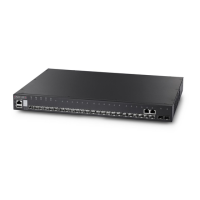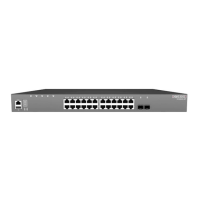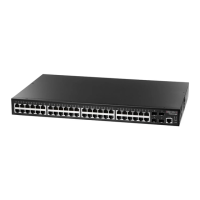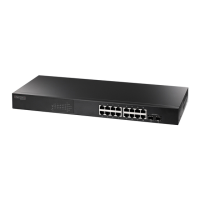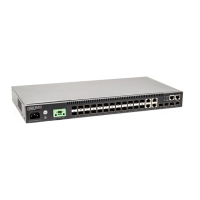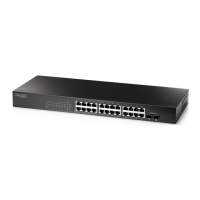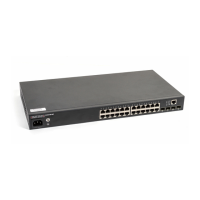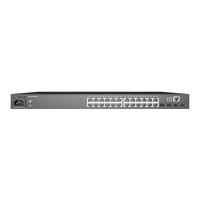Chapter 21
| VLAN Commands
Configuring L2PT Tunneling
– 611 –
■
with the destination address 01-80-C2-00-00-01~0A (S-VLAN tag), it is
filtered, decapsulated, and processed locally by the switch if the protocol is
supported.
◆ When a protocol packet is received on an access port (i.e., an 802.1Q trunk port
connecting the edge switch to the local customer network)
■
with the destination address 01-80-C2-00-00-00,0B~0F (C-VLAN), and
■
L2PT is enabled on the port, the frame is forwarded to all QinQ uplink
ports and QinQ access ports on which L2PT is enabled for that protocol
in the same S-VLAN.
■
L2PT is disabled on the port, the frame is decapsulated and processed
locally by the switch if the protocol is supported.
■
with destination address 01-80-C2-00-00-01~0A (S-VLAN), the frame is
filtered, decapsulated, and processed locally by the switch if the protocol is
supported.
Processing Cisco-compatible protocol packets
◆ When a Cisco-compatible L2PT packet is received on an uplink port, and
■
recognized as a CDP/VTP/STP/PVST+ protocol packet (where STP means
STP/RSTP/MSTP), it is forwarded to the following ports in the same S-VLAN:
(a) all access ports for which L2PT has been disabled, and (b) all uplink
ports.
■
recognized as a Generic Bridge PDU Tunneling (GBPT) protocol packet (i.e.,
having the destination address 01-00-0C-CD-CD-D0), it is forwarded to the
following ports in the same S-VLAN:
■
other access ports for which L2PT is enabled after decapsulating the
packet and restoring the proper protocol and MAC address
information.
■
all uplink ports.
◆ When a Cisco-compatible L2PT packet is received on an access port, and
■
recognized as a CDP/VTP/STP/PVST+ protocol packet, and
■
L2PT is enabled on this port, it is forwarded to the following ports in the
same S-VLAN: (a) other access ports for which L2PT is enabled, and
(b) uplink ports after rewriting the destination address to make it a
GBPT protocol packet (i.e., setting the destination address to 01-00-0C-
CD-CD-D0).
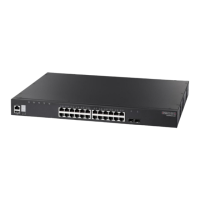
